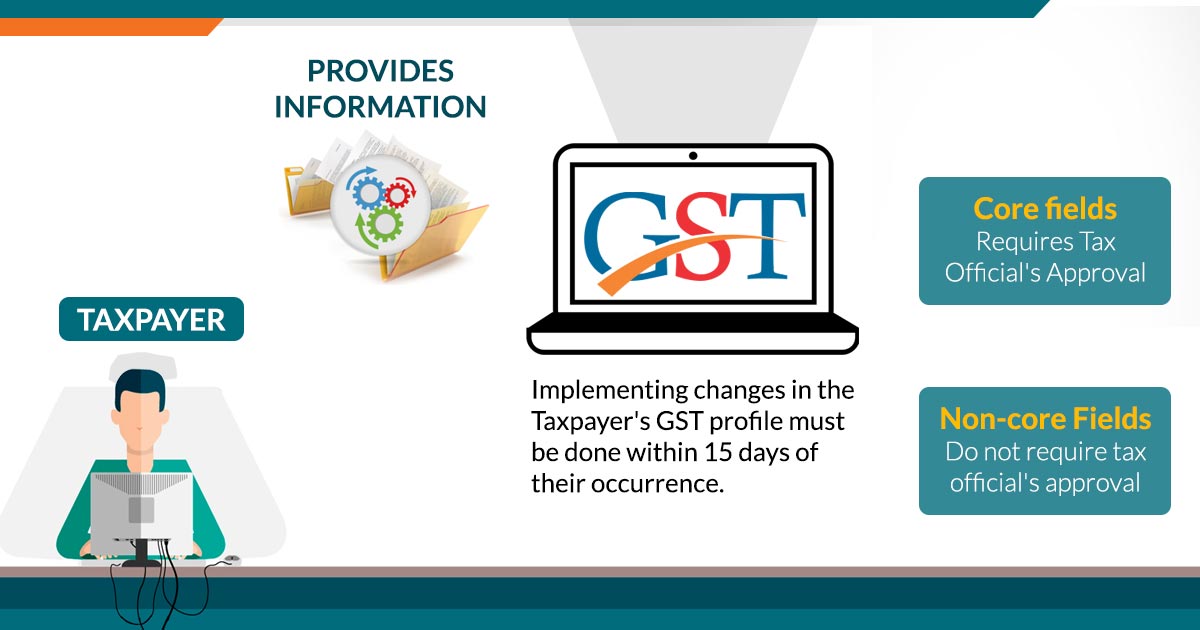Comprehending the Perks of the very best GST Registration Services in Singapore
Comprehending the Perks of the very best GST Registration Services in Singapore
Blog Article
From Beginning to Finish: The Ultimate Roadmap to GST Registration for Organizations Looking For Financial Stability
Navigating the complexities of Item and Provider Tax Obligation (GST) enrollment is a vital step for organizations striving for monetary security. From recognizing the essential concepts of GST to following post-registration standards, the process can seem discouraging at initial glimpse. Nonetheless, breaking down the roadmap into workable steps can simplify the enrollment journey for companies seeking to improve their financial standing. Allow's discover the crucial components that compose this utmost roadmap and uncover how each phase contributes to laying a strong foundation for monetary success.
Understanding GST Basics
Diving into the fundamental concepts of Goods and Services Tax Obligation (GST) is essential for gaining a detailed understanding of its effects on organizations and the economic climate. GST is a value-added tax obligation imposed on many goods and services for domestic consumption. It has replaced several indirect tax obligations that existed in the pre-GST period, streamlining the tax framework and boosting ease of doing service in India. Under the GST system, both solutions and goods are exhausted at a specific price, which is determined based on their classification. If their annual turnover exceeds the threshold restriction set by the government, companies are required to sign up for GST. Input Tax Obligation Debt (ITC) is a significant attribute of GST, enabling organizations to declare credit rating for tax obligations paid on inputs, reducing the total tax obligation burden. Recognizing the basics of GST is critical for organizations to abide by tax obligation policies, handle their funds successfully, and add to the nation's financial growth by joining a transparent tax obligation system.
Eligibility Requirements for Enrollment
To register for GST, businesses must fulfill specific eligibility standards established by the government. The main eligibility requirement is that any kind of service associated with the supply of products or solutions with an annual aggregate turn over over the threshold limit established by the authorities have to sign up for GST. As of the existing regulations, the threshold limit for GST enrollment is an annual aggregate turnover of 40 lakhs for services running within a state, besides special group states where the restriction is 20 lakhs. Additionally, specific businesses are needed to sign up for GST irrespective of their turnover, such as interstate providers, casual taxable persons, and businesses reliant pay tax under the reverse charge mechanism. It is vital for businesses to thoroughly evaluate their turnover and deal kinds to determine their GST registration commitments accurately. Failure to register for GST when eligible can cause penalties and lawful repercussions, making it crucial for businesses to comply with the defined qualification standards.
Records Needed for Registration
Having met the eligibility standards for GST enrollment, businesses hop over to these guys should currently guarantee they have the requisite papers in position to proceed with the enrollment process successfully. The files required for GST enrollment normally consist of evidence of business constitution, such as collaboration deed, registration certification, or incorporation certificate for various sorts of businesses. In addition, organizations require to offer documents establishing the major business, such as a rental contract or electrical energy bill. PAN card of the service, along with the identity and address proof of promoters/partners/directors, are important for confirmation purposes. Savings account statements, along with terminated cheques or a copy of the financial institution passbook, are needed to validate the financial details supplied during enrollment. Businesses have to this article have electronic signatures ready for the authorized notary. Making sure all these files are organized and readily available will quicken the GST enrollment procedure, enabling companies to abide with tax regulations seamlessly.
Step-by-Step Enrollment Refine
Beginning the GST enrollment procedure entails a collection of structured actions to guarantee a certified and smooth registration for companies. The initial step is to check out the GST site and fill in the registration type with exact information of the organization entity. Following this, the applicant receives a Short-term Referral Number (TRN) which is made use of to return to the application process if it's not completed in one go.
Following, all needed files according to the list provided by the GST portal requirement to be submitted. These records normally include evidence of service identity, registration and address proofs of marketers, financial declarations, and business entity's PAN card.

Post-Registration Conformity Guidelines

Final Thought
Finally, businesses seeking financial security has to recognize the essentials of GST, fulfill qualification requirements, gather required documents, adhere to the step-by-step enrollment procedure, her explanation and follow post-registration guidelines - Best GST registration services in Singapore. By sticking to these actions, organizations can ensure conformity with tax policies and preserve economic stability in the future
Additionally, specific services are called for to register for GST irrespective of their turnover, such as interstate providers, informal taxable individuals, and services liable to pay tax under the reverse fee mechanism.Having actually fulfilled the eligibility requirements for GST enrollment, organizations should currently guarantee they have the requisite papers in area to proceed with the registration procedure effectively. The documents needed for GST registration generally include evidence of business constitution, such as partnership deed, enrollment certification, or consolidation certification for various types of organizations. Additionally, companies require to supply records establishing the major area of company, such as a rental arrangement or electrical power expense.Starting the GST registration procedure involves a series of structured actions to guarantee a compliant and seamless enrollment for companies.
Report this page